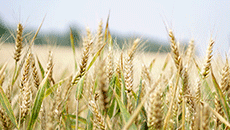
Alcohol is produced from raw materials derived from agriculture, and involves various products, including malt sorghum, malting barley, maize, potatoes, grapes etc. Some of these products are directly dependent on breweries in terms of demand and have far reaching consequences if not processed.
With the previous ban on liquor sales, due to COVID-19 regulations, there were already an accumulation of supply of raw materials, some of which could not be stored for extended periods and which also did not have any export opportunities. A further ban only puts more pressure on the system and has far-reaching financial and ecological consequences.
Malt barley is an important crop within the winter grain production area which has limited crop choices. This season saw good malting barley plantings and the weather contributed to a good season. Unfortunately, with the good crop and previous liquor bans in place, a substantial surplus built up with limited export opportunities, which will result in significantly fewer plantings in the coming season. By now, purchase mandates decreased considerably in certain regions, reducing the number of hectares that can be planted in the coming season. This directly affects producers in terms of financing profiles, crop rotation systems and the control of ecosystems. The result – significant financial pressure on an area that has already experienced a lot of pressure with droughts over the past few seasons and where agricultural debt is at high levels.
The further ban on liquor also impacts small-scale producers, whom are supported in various programmes by these companies. Not only will producers' access to markets now be reduced due to surpluses, but the risks that support will be discontinued due to companies’ financial losses, is now a reality. The Barley industry have great opportunities to expand and create further agro-processing opportunities and create jobs, but given the current conditions, investments are discouraged, which have a long-term impact on the sustainability of the industry.
Grain SA acknowledges that everything needs to be done to keep the nation safe and reduce the pressure on the healthcare system. However, it must also be kept in consideration that an entire industry with a supported value chain is effected by the alcohol ban, further effecting the sustainability of the livelihoods of people employed and dependent on this industry.
Competitive countries offer substantial support for their agricultural sector as a whole where similar decisions have been made due to COVID-19. The question, now and during droughts, is still being raised – How will local producers be supported as a result of this ban and has the consequences of this decision been consulted and researched? The current scenario is causing great concern among producers as single-buyer markets are now disappearing and the agricultural sector is suffering.